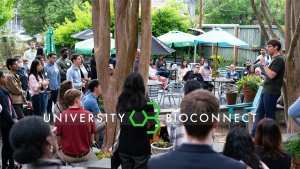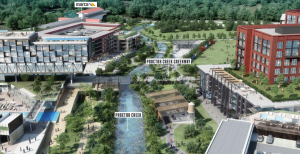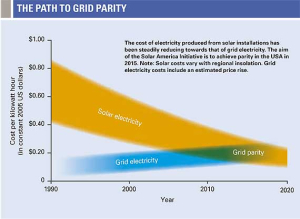 It’s said that the rise of remote work will clear out cities.
It’s said that the rise of remote work will clear out cities.
While it’s true that set projects can be done on set schedules, and that office work can be done anywhere, it’s not true that cities are doomed.
I got a taste of that yesterday.
It was a little thing. A meetup in a bar for biochemistry entrepreneurs, students, and financiers. Maybe 50 people showed up, in 80 degree heat, on a patio near downtown Atlanta. It’s one of dozens of such meetings, in all sorts of disciplines, taking place every month around Atlanta’s science hubs. Money meets ideas informally, and while nothing happens at once a process moves forward.
 DNA as a Programming Language, which will dominate growth in the next decades, accelerates the concentration. A lab is built around expensive equipment that can’t fit in your house. You can program a computer remotely. You can’t do that with a mass spec.
DNA as a Programming Language, which will dominate growth in the next decades, accelerates the concentration. A lab is built around expensive equipment that can’t fit in your house. You can program a computer remotely. You can’t do that with a mass spec.
Shared facilities, even if owned by a single company, require workers to be there. It’s mostly young workers, and they will want to live close. They’ll want places to eat, drink, exercise, and party.
Atlanta is seeing this right now, as Georgia Tech expands into the west side of the city, and slums are placed by middle-class apartments. Neighborhoods that a few years ago were no-go zones are now crowded, gentrifying. There’s nothing the government can do to stop it because nothing segregates like property taxes.
Biochemistry won’t happen in just a few places, in Boston and San Francisco. The money may be centered there, as the markets are centered in New York. But any city with first-class research can build a biotech center, and every biotech center is going to go through explosive growth.
This is the world our children are building. It’s a world of cities, safe cities, big, beautiful cities, connected by technology but independent of it, and money is anxious to follow.










